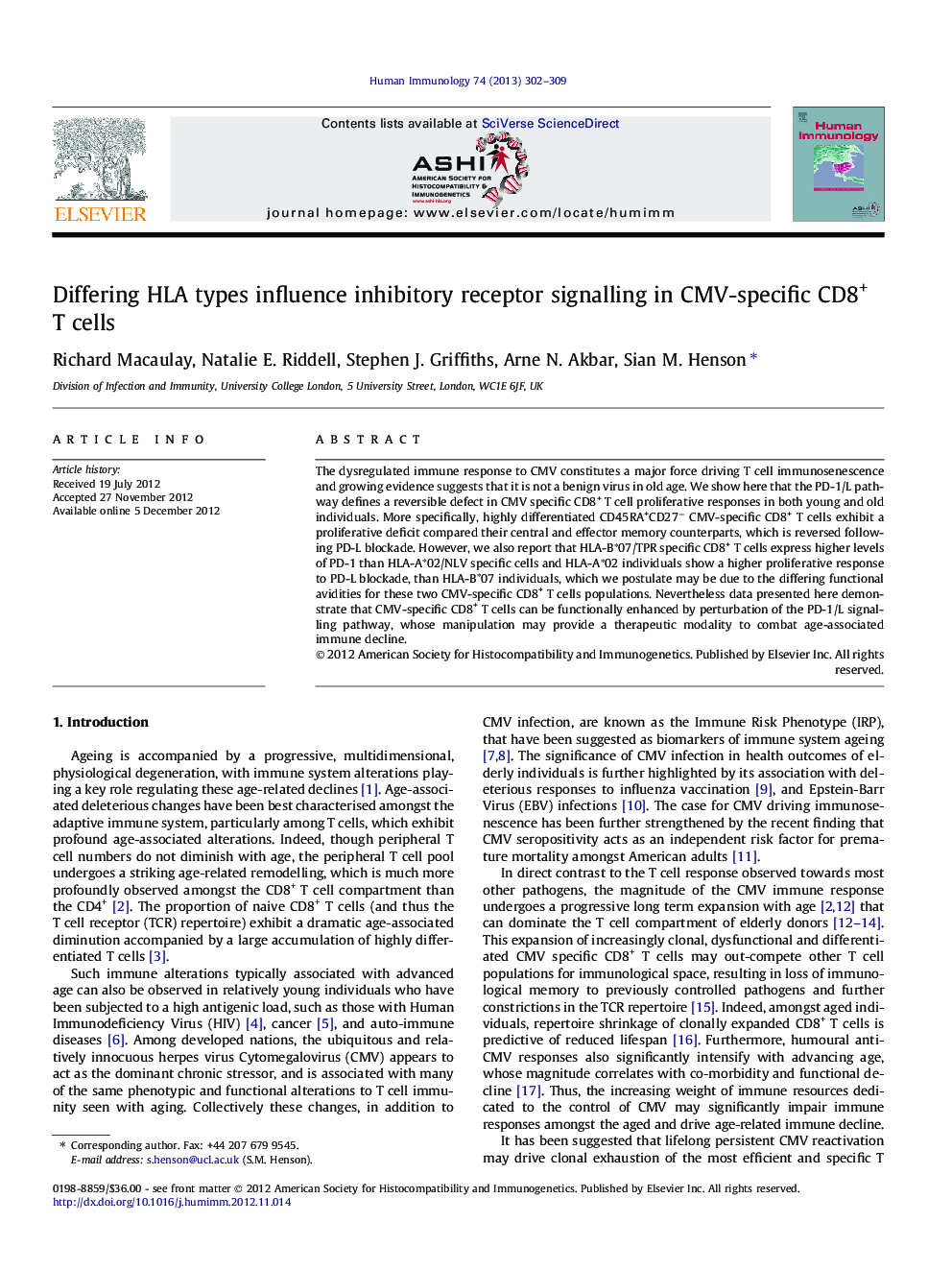| Article ID | Journal | Published Year | Pages | File Type |
|---|---|---|---|---|
| 6116837 | Human Immunology | 2013 | 8 Pages |
Abstract
The dysregulated immune response to CMV constitutes a major force driving T cell immunosenescence and growing evidence suggests that it is not a benign virus in old age. We show here that the PD-1/L pathway defines a reversible defect in CMV specific CD8+ T cell proliferative responses in both young and old individuals. More specifically, highly differentiated CD45RA+CD27â CMV-specific CD8+ T cells exhibit a proliferative deficit compared their central and effector memory counterparts, which is reversed following PD-L blockade. However, we also report that HLA-Bâ07/TPR specific CD8+ T cells express higher levels of PD-1 than HLA-Aâ02/NLV specific cells and HLA-Aâ02 individuals show a higher proliferative response to PD-L blockade, than HLA-Bâ07 individuals, which we postulate may be due to the differing functional avidities for these two CMV-specific CD8+ T cells populations. Nevertheless data presented here demonstrate that CMV-specific CD8+ T cells can be functionally enhanced by perturbation of the PD-1/L signalling pathway, whose manipulation may provide a therapeutic modality to combat age-associated immune decline.
Related Topics
Life Sciences
Immunology and Microbiology
Immunology
Authors
Richard Macaulay, Natalie E. Riddell, Stephen J. Griffiths, Arne N. Akbar, Sian M. Henson,
